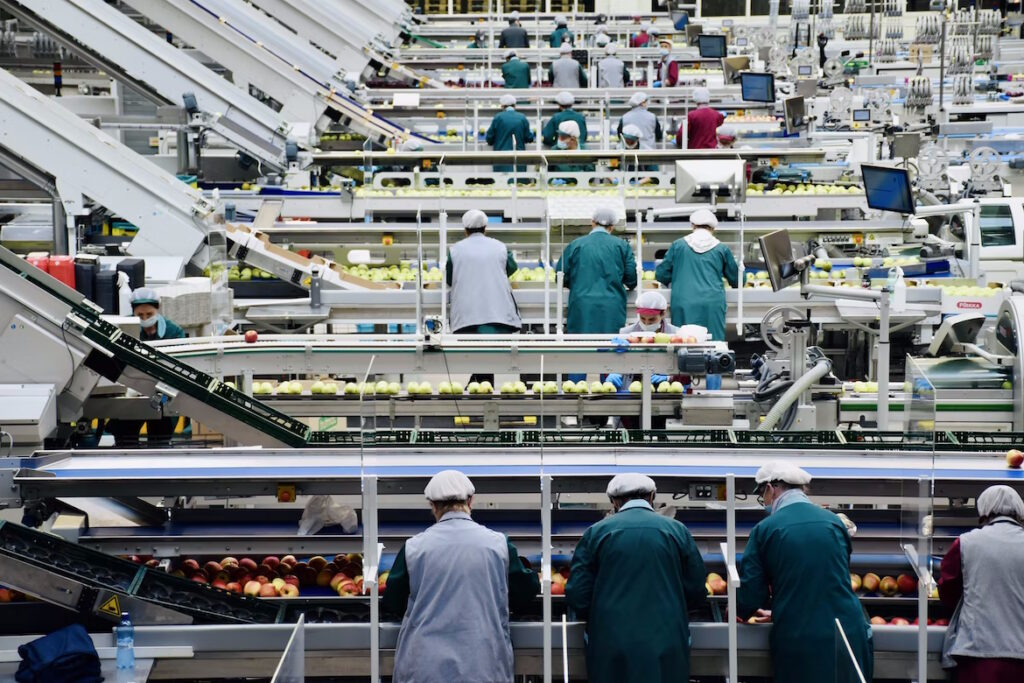The food and beverage industry is constantly evolving and adapting to the changing tastes and preferences of consumers. As we enter a new year, it’s essential for companies in this industry to stay on top of the latest trends in order to remain competitive. In this post, we’ll be discussing six key trends that the food and beverage industry should keep in mind for 2023.
1. Plant-based food options
One trend that is showing no signs of slowing down is the increasing demand for plant-based options. As more consumers opt for meat and dairy alternatives, the demand for plant-based options will continue to grow in the food and beverage industry. The global plant-based meat market is rapidly expanding as buyers become more familiar with the product. This trend is driven by consumers’ growing concern for animal welfare, environmental impact, and health. As a result, food and beverage companies are increasing their offerings of plant-based options, such as plant-based meats, dairy alternatives, and vegan snacks.
2. Health and wellness
The focus on health and wellness continues to be a major trend in the food and beverage industry. Consumers are becoming increasingly conscious of the ingredients and nutrition in their food, which is driving demand for organic, non-GMO, and natural products. This trend is also evident in the growing popularity of functional ingredients, such as probiotics, antioxidants, and omega-3 fatty acids. Companies that prioritize health and wellness in their products are likely to see success in the coming year.
3. Sustainability in food production
Sustainability is another trend that is becoming increasingly important in the food and beverage industry. Consumers are becoming more conscious of the environmental impact of their food choices, which is driving demand for sustainable practices in the industry. This includes reducing food waste, using environmentally-friendly packaging, and sourcing ingredients from local and sustainable farms. Companies demonstrating their commitment to sustainability are likely to attract more environmentally-conscious consumers.

4. Convenience
The convenience trend continues to drive demand for pre-packaged, ready-to-eat, and on-the-go food options. Consumers are becoming increasingly busy and are looking for food options that are quick and easy to prepare. This trend is evident in the growing popularity of meal kits, pre-packaged salads, and ready-to-eat snack options. Companies that can offer convenient food options are likely to see success in the coming year.
5. Transparency
Transparency is another trend that is becoming increasingly important in the food and beverage industry. Consumers are looking for more information about the origin, ingredients, and production of their food. This is driving demand for transparency in the industry, with more companies providing detailed information about their products online and on packaging. Companies that can demonstrate their commitment to transparency are likely to attract more informed and concerned consumers.
6. Food delivery and takeout
The trend of food delivery and takeout will continue to grow as consumers look for more convenient options. With the ongoing COVID-19 pandemic, more consumers are ordering food online and opting for takeout instead of dining in. This trend is likely to continue even after the pandemic is over, as more consumers have become accustomed to the convenience of delivery and takeout. Companies that can offer delivery and takeout options are likely to see success in the coming year.
What should companies do going into 2023?
In conclusion, the food and beverage industry is constantly evolving and adapting to the changing tastes and preferences of consumers. By keeping these six trends in mind for 2023, companies in this industry can stay ahead of the game and remain competitive. From plant-based options, health and wellness, sustainability, convenience, transparency, delivery and takeout, immigrant cuisine and technology, companies that can adapt to these trends will be well-positioned for success in the coming year. It’s important for companies to stay on top of these trends, and to continuously innovate and adapt to the changing market in order to remain relevant and attract customers. Ideally, companies should learn from their peers and explore how to prepare for the future. The Global Summit on Scope 3 Emissions Reduction will bring together key industry experts to learn more about reporting strategies & carbon data management in a small-scale, industry-driven event, on 20-21st April 2023 in Amsterdam, the Netherlands. The two-day, hybrid event features in-depth case studies of supply chain transformation, carbon accounting, and networking breaks dedicated to exchanging insights and expertise on tackling Scope 3 emissions. Visit future-bridge.eu and netzero-events.com or follow us on our social media to track other energy use and decarbonization events.





